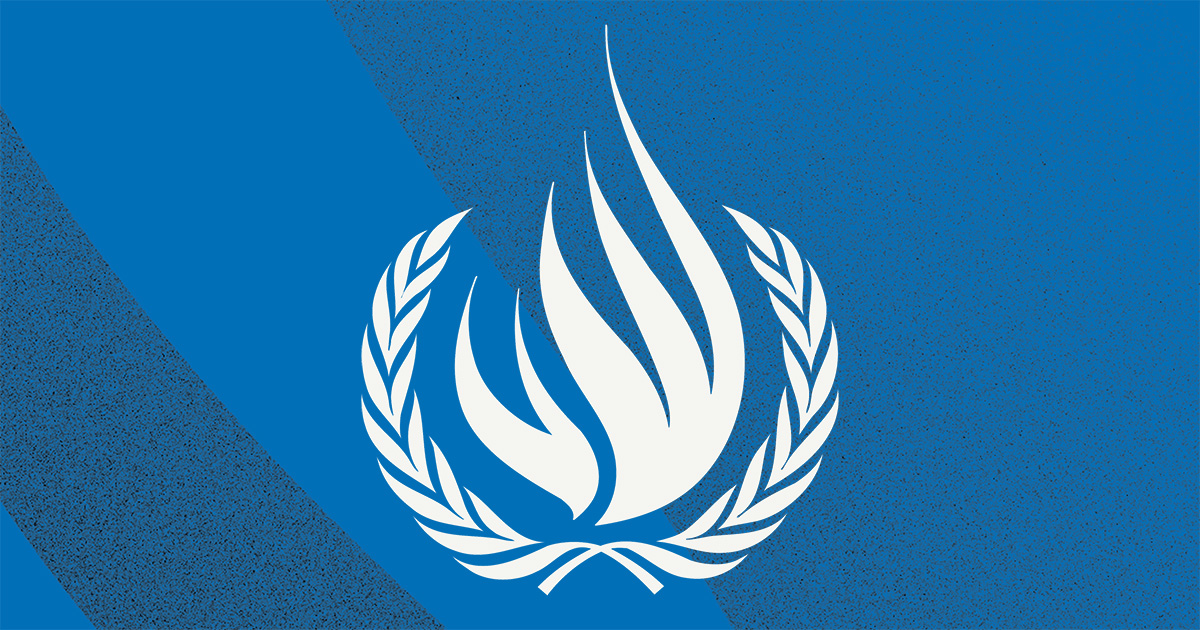
GENEVA (6 December 2022) – In order to realise a “world living in harmony with nature” by 2050, UN experts today called on States to ensure that the post-2020 Global Biodiversity Framework is centred on human rights.
“Healthy biodiversity and ecosystems are the foundation of life and fundamental to the enjoyment of human rights, including the rights to life, health, food, water, culture, and a healthy environment,” the experts said.
The call to action from UN human rights experts comes just ahead of the 15th Conference of the Parties to the Convention on Biological Diversity (CBD COP-15), taking place from 7 to 19 December, in Montreal, Canada, where the Framework is expected to be adopted.
The experts are urging member States to mainstream human rights throughout the Framework, including by specifically referencing the right to a clean, healthy and sustainable environment and the rights of Indigenous Peoples in the principles, Goal B and indicators of the Framework.
The United Nations recognised the right to a clean, healthy and sustainable environment in Human Rights Council resolution 48/13 adopted in October 2021 and General Assembly resolution 76/300 adopted in July 2022. As healthy ecosystems and biodiversity are at the core of this right, States have obligations to protect, conserve and restore biodiversity. “Measurable targets for the recognition and implementation of this right are essential,” the experts said.
The UN human rights experts stressed that measures intended to protect biodiversity cannot come at a cost to human rights.
“Indigenous Peoples and others whose cultures are based on close kinship with nature and ecological stewardship responsibilities have been disproportionately harmed by exclusionary conservation practices, including ‘fortress conservation’, which endanger traditional livelihoods and nature governance practices while jeopardising food security, educational opportunities, access to traditional medicines, safe drinking water, and ability to access and pass on cultural and spiritual heritage. Too often, these practices are accompanied by serious human rights violations.”
The UN human rights experts called on States to adopt relevant targets to guarantee the rights and roles of Indigenous Peoples, including their right to free, prior and informed consent.
“Indigenous Peoples are vital to conservation. They possess a wealth of knowledge that steward natural environments in ways that prevent deforestation, restore depleted ecosystems and maintain species resilience. As traditional guardians are displaced, private actors, including extractive corporations and international criminal networks, are emboldened to degrade vital ecosystems with impunity,” the experts said.
They stressed that realising the commitments adopted under the Framework would depend on accountability.
“Target 21 on full and effective participation and access to justice must safeguard the security and rights of all people, in particular Indigenous and environmental human rights defenders,” they said.
“Businesses are responsible for a large share of the decline of biodiversity and the degradation of ecosystems,” the UN experts said. “Target 15 on the responsibilities of businesses and financial institutions must confirm the responsibility of States to hold businesses accountable to respect human rights and protect biodiversity.
“It is imperative that the post-2020 Global Biodiversity Framework be ambitious, rights-based and effective.”
ENDS
*The experts: David Boyd, Special Rapporteur on human rights and the environment; Ian Fry, Special Rapporteur on the promotion and protection of human rights in the context of climate change; Francisco Cali Tzay, Special Rapporteur on the rights of indigenous peoples
The Special Rapporteurs are part of what is known as the Special Procedures of the Human Rights Council. Special Procedures, the largest body of independent experts in the UN Human Rights system, is the general name of the Council"s independent fact-finding and monitoring mechanisms that address either specific country situations or thematic issues in all parts of the world. Special Procedures experts work on a voluntary basis; they are not UN staff and do not receive a salary for their work. They are independent from any government or organisation and serve in their individual capacity.
For more information and media requests, please contact: Abigail Koshimo Brown (abigail.brown1@un.org) or Viktoria Aberg (viktoria.aberg@un.org).
For media inquiries related to other UN independent experts please contact Renato Rosario De Souza (renato.rosariodesouza@un.org) or Dharisha Indraguptha (dharisha.indraguptha@un.org)
Follow news related to the UN"s independent human rights experts on Twitter @UN_SPExperts
Concerned about the world we live in?
Then STAND UP for someone"s rights today.
#Standup4humanrights
and visit the web page at http://www.standup4humanrights.org










